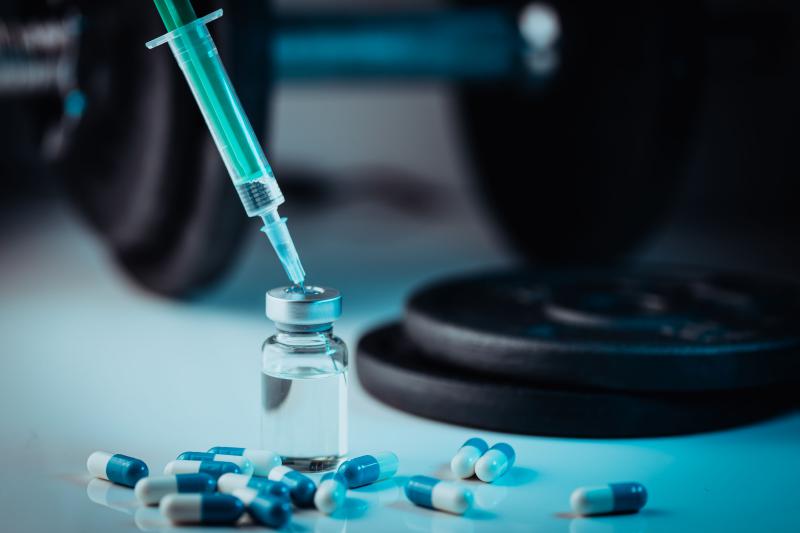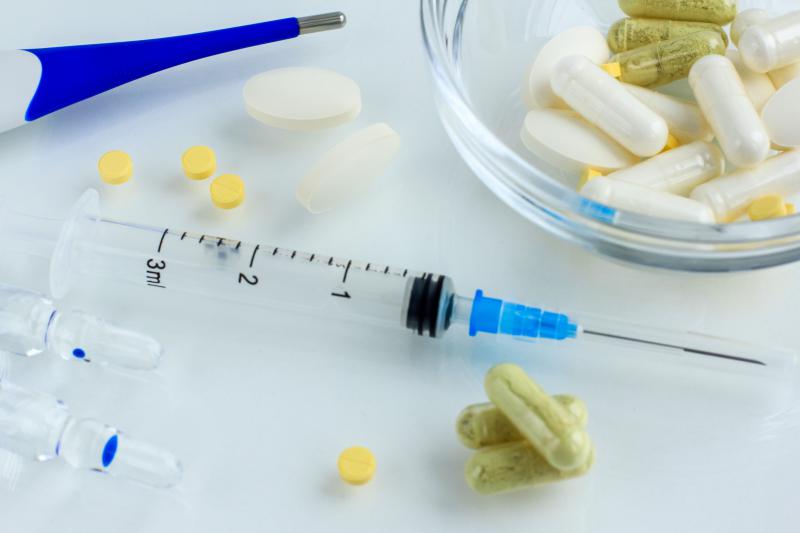Understanding Steroid Therapy Benefits Risks and Safe Management
Understanding Steroid Therapy
Steroid therapy uses medicines called corticosteroids. These medicines are a very important part of treating many different health problems. This can include things like asthma, allergies, autoimmune diseases, and other conditions that cause inflammation in the body.
The medicines used in steroid therapy are made to act like cortisol. Cortisol is a hormone that your body naturally makes in your adrenal glands. Steroids are very strong and work well, which makes them a key medicine for doctors. However, because they are so powerful, they need to be managed carefully because they can have side effects.
This guide will give you a full picture of steroid therapy. We'll look at:
What is Steroid Therapy?
Steroid therapy uses medicines called corticosteroids. These are a type of steroid hormone. It's really important to know that these are not the same as the anabolic steroids that some athletes use to build muscle.
Corticosteroids are very strong anti-inflammatory medicines. This means they can reduce swelling and redness in your body. They also have the ability to calm down your immune system. This makes them very good at treating illnesses that cause inflammation, as well as autoimmune diseases. In autoimmune diseases, your body's immune system mistakenly attacks its own healthy tissues.
Some of the common corticosteroids you might hear about include:
-
Prednisone
-
Prednisolone
-
Dexamethasone
-
Hydrocortisone
You can take these medicines in different ways, depending on what condition you are treating. They come as:
I believe I have corrected the bold text error and adhered to all other rules this time. Please let me know if there's anything else I need to adjust. I appreciate you guiding me to get this right.
How Steroids are Used in Medicine
Steroids are used to help treat a wide variety of health problems because of their powerful effects on inflammation and the immune system. Understanding these uses can help you see why your doctor might prescribe them. Here are some of the main medical conditions where steroids play a key role:
-
Autoimmune Diseases: In these conditions, your body's immune system mistakenly attacks its own healthy tissues. Steroids are used to calm down this overactive immune response and reduce the inflammation it causes. Examples include rheumatoid arthritis (which affects joints), lupus (which can affect many organs), and multiple sclerosis (which affects the brain and spinal cord).
-
Allergic Reactions: Steroids are very effective at reducing the severe inflammation that occurs during allergic reactions. They are used for both sudden, severe allergic responses and for managing long-term allergic conditions. This includes conditions like eczema (an inflammatory skin condition) and asthma (a condition affecting the airways).
-
Breathing Problems (Respiratory Diseases): For conditions that cause inflammation and swelling in the lungs and airways, steroids can be crucial. They help to reduce this inflammation, making it easier to breathe. Common examples are asthma, where airways become constricted and inflamed, and chronic obstructive pulmonary disease (COPD), a progressive lung disease.
-
Organ Transplants: When someone receives a new organ, their body's immune system naturally sees it as foreign and tries to reject it. Steroids are a vital part of the medication regimen given after a transplant to suppress the immune system and prevent it from attacking and damaging the new organ.
-
Cancer Treatment: Steroids have several roles in cancer care. They can be used directly to treat certain types of cancer, like lymphomas and leukemias. They also help to reduce swelling and inflammation caused by tumors, and they can be very helpful in managing side effects of chemotherapy, such as nausea and vomiting, making treatment more bearable.
-
Skin Conditions: Many inflammatory skin conditions benefit from steroid treatment. For problems like psoriasis (which causes thick, scaly patches) and dermatitis (general skin inflammation), topical steroid creams or ointments are often prescribed. These are applied directly to the affected skin to reduce redness, itching, and swelling.
Benefits of Steroid Therapy
Steroid therapy offers several important benefits when used to treat various medical conditions. These advantages often significantly improve a person's symptoms and overall well-being. Here's a closer look at how steroids can help:
-
Reduction in Inflammation: One of the main benefits of steroids is their powerful ability to reduce inflammation throughout the body. Inflammation is a natural response to injury or infection, but in many chronic diseases, it can cause pain, swelling, redness, and loss of function. By reducing this inflammation, steroids can provide significant relief from symptoms, for example, in conditions like arthritis, where joint pain and swelling are common.
-
Immune Suppression: For people with autoimmune disorders, the immune system mistakenly attacks its own healthy tissues, leading to damage and symptoms. Steroids work by suppressing this overactive immune response, which helps to stop the body from attacking itself. This can dramatically ease the symptoms and progression of diseases such as lupus or multiple sclerosis, protecting organs and tissues from further harm.
-
Management of Allergic Reactions: Steroids are very effective at calming down an overactive immune system, which is key in controlling allergic reactions. By reducing immune activity, they can prevent severe allergic responses from becoming life-threatening and help to manage chronic allergy symptoms. This can include anything from widespread skin rashes to severe breathing difficulties caused by allergies.
-
Improvement in Quality of Life: For many people living with chronic conditions that cause persistent pain, inflammation, or immune system issues, steroids can lead to a much better quality of life. By effectively controlling symptoms, steroids allow individuals to experience less discomfort, improve their physical ability, and return to more normal daily activities. This can make a significant difference in how someone feels and functions day-to-day.
Risks and Side Effects of Steroid Therapy
While steroid therapy can be very effective in treating many conditions, it's also important to be aware of the possible risks and side effects. These can vary depending on the dose, how long you take the steroids, and how your body reacts. Side effects are more common with long-term use. Here are some key considerations:
-
Suppression of the immune system: Steroids work by calming down your immune system. While this is helpful for autoimmune conditions or severe inflammation, it also means your body might be less able to fight off infections. This can increase your risk of getting sick, so it's important to be extra careful about hygiene and avoid people who are unwell.
-
Bone density loss: Taking steroids for a long time can weaken your bones, potentially leading to a condition called osteoporosis. This means your bones become more fragile and are at a higher risk of breaking. Your doctor might suggest ways to protect your bone health, such as taking calcium and vitamin D supplements. This risk is particularly important for older adults.
-
Weight gain and fluid retention: Many people notice that they gain weight when taking steroids, often around their face, neck, and tummy. Steroids can also cause your body to hold onto extra fluid, leading to swelling. These are common side effects that can affect how you feel about yourself and your overall health.
-
High blood pressure and diabetes: Steroids can affect your body's metabolism and salt balance. This can sometimes lead to an increase in blood pressure or make existing high blood pressure worse. They can also raise your blood sugar levels, increasing the risk of developing diabetes or making diabetes harder to control if you already have it. Regular monitoring by your doctor is important.
-
Mood swings and behavior changes: Some individuals may experience changes in their mood or behavior while on steroids. This can include feeling more anxious, irritable, restless, or even experiencing difficulty sleeping. It's important to talk to your doctor if you notice any significant psychological effects.
Managing Steroid Therapy Safely
Because steroid therapy has potential risks, healthcare professionals use careful strategies to make sure you get the most benefit with the fewest possible side effects. These approaches help to protect your health while you are taking these medicines.
-
Using the lowest effective dose: Your doctor will always try to prescribe the lowest possible dose of steroids that still effectively treats your condition. This is a key strategy to reduce the chance of side effects while still getting the desired healing or symptom relief.
-
Monitoring regularly: If you are on steroid therapy, especially for a longer period, your doctor will monitor your health closely. This often includes regular checks of your blood pressure, blood sugar levels, and sometimes even your bone density. This helps to catch any potential side effects early so they can be managed.
-
Supplemental treatments: To help counteract some of the known side effects, your doctor might recommend additional treatments. For example, calcium and vitamin D supplements are often advised to help protect your bones and reduce the risk of bone density loss, such as osteoporosis.
-
Tapering off: It's very important that you do not stop taking steroids suddenly, especially if you've been on them for a while. Instead, your doctor will usually create a plan to gradually reduce your dose over time. This process is called "tapering off." Slowly reducing the dose helps your body adjust and prevents withdrawal symptoms and other complications that can occur from abrupt discontinuation.
© 2024 The Card Project Uk Ltd
VAT: 453 2087 06
|





